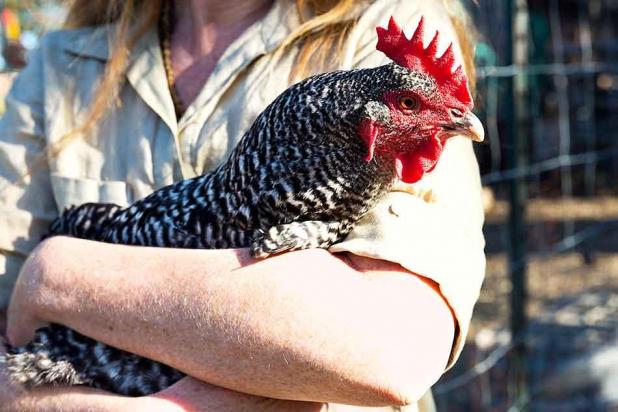
Backyard flocks can cause Salmonella infection
The Centers for Disease Control and Prevention, and public health officials in several states are investigating multistate outbreaks of Salmonella infections linked to contact with backyard poultry.
There have been 163 people reported ill from 43 states with 34 people hospitalized. No deaths have been reported.
The true number of sick people is likely much higher than the reported number, as many people recover without medical care and are not tested for Salmonella.
One-third of sick people are young children under 5 years
Backyard poultry, like chicken and ducks, can carry Salmonella germs even if they look healthy and clean. These germs can easily spread to anything in the areas where they live and roam.
You can get sick from touching your backyard poultry or anything in their environment and then touching your mouth or food, and swallowing Salmonella germs.
Wash your hands
Always wash your hands with soap and water immediately after touching backyard poultry, their eggs, or anything in the area where they live and roam.
Use hand sanitizer if soap and water are not readily available. Consider having hand sanitizer at your coop.
Be safe around
backyard flocks
Don’t kiss or snuggle backyard poultry, and don’t eat or drink around them. This can spread Salmonella germs to your mouth and make you sick.
Keep your backyard flock and supplies you use to care for them (like feed containers and shoes you wear in the coop) outside of the house. You should also clean the supplies outside the house.
Supervise kids
around flocks
Always supervise children around backyard poultry and make sure they wash their hands properly afterward.
Don’t let children younger than 5 years touch chicks, ducklings or other backyard poultry. Young children are more likely to get sick from germs like Salmonella.
Handle eggs safely
Collect eggs often. Eggs that sit in the nest can become dirty or break.
Throw away cracked eggs. Germs on the shell can more easily enter the egg though a cracked shell.
Rub off dirt on eggs with fine sandpaper, a brush or a cloth. Don’t wash them because colder water can pull germs into the egg.
Refrigerate eggs to keep them fresh and slow the growth of germs.
Cook eggs until both the yolk and white are firm, and cook egg dishes to an internal temperature of 160°F to kill all germs.
Call your healthcare provider right away if you have any of these severe symptoms:
—Diarrhea and a fever higher than 102°F.
—Diarrhea for more than three days that is not improving.
—Bloody diarrhea.
—So much vomiting that you cannot keep liquids down.
—Signs of dehydration, such as: not urinating much, dry mouth and throat, and feeling dizzy when standing up.
Most people infected with Salmonella experience diarrhea, fever and stomach cramps.
Symptoms usually start six hours to six days after swallowing the bacteria.
Most people recover without treatment after four to seven days.
Some people — especially children younger than 5 years, adults 65 years and older, and people with weakened immune systems — may experience more severe illnesses that require medical treatment or hospitalization.
